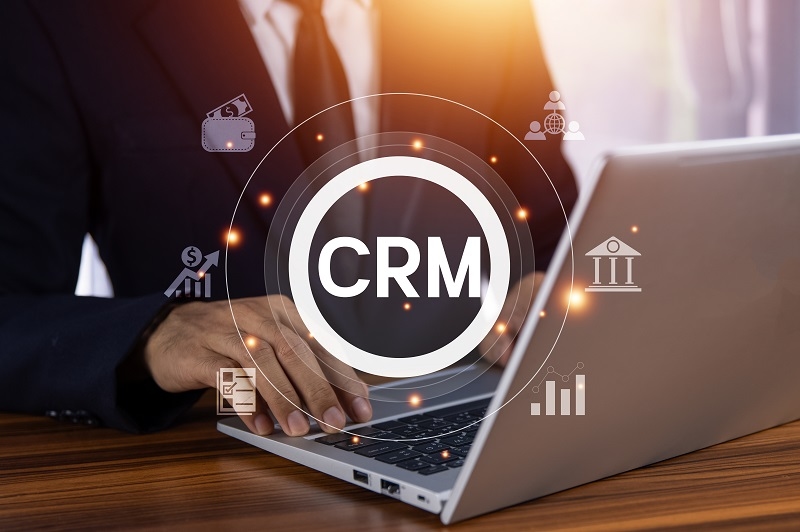
In modern digital society, it is more crucial to keep in touch with your customers than ever before. Very bright differences can be made with the appropriate software of CRM software in small businesses. It assists you in sorting out your customer reviews, enhancing contact, and increasing your sales. In this blog, we are going to look at what CRM is all about, the best CRM software to use by small organizations, the year 2025, and how CRM makes you a better manager of your business.
Customer Relationship Management (CRM ) software is one of the tools used by businesses to manage customer interactions and leads. In the case of small businesses, it serves as an intelligent secretary by itself--it records sales, contacts, emails, promotions, and customer services in a single source.
Customer Relationship Management is abbreviated as CRM. It is a kind of a software that holds the information of the customers such as names and contact details, purchase history, etc. It also monitors the communication and assists with the management of the tasks and follow ups.
With CRM software, businesses can:
CRM management software is especially helpful for small businesses because:
Even if you run a team of just 2-3 people, a CRM platform for small businesses helps you work smarter, not harder.
When choosing the best CRM for your small business, it’s important to focus on features that are simple, useful, and tailored to small business needs.
Small businesses often don’t have a full-time tech team, so the CRM should be easy to set up and use without needing technical knowledge.
A good CRM helps you store all customer and lead information in one place. It should also let you add notes, track interactions, and schedule follow-ups easily.
You should be able to see where each customer is in the sales process. A visual sales pipeline helps you keep an eye on opportunities and close deals faster.
Look for a CRM with marketing automation features like email marketing, SMS campaigns, and automatic follow-ups. These tools save time and keep your customers engaged.
The CRM should work well with other tools you already use—like Gmail, QuickBooks, Shopify, or Zoom.

Let’s take a look at the best CRM software options in 2025 for small business owners. These tools are popular, easy to use, and packed with helpful features.
Why it’s great: HubSpot CRM is free to start and packed with features. It’s designed for small businesses and startups.
Key Features:
Pros:
Cons:
Some features are only available in paid versions
Why it’s great: Zoho CRM is a powerful yet affordable solution for small businesses.
Key Features:
Pros:
Cons:
Learning curve for new users
Why it’s great: Salesforce is a trusted name in CRM. The Essentials version is tailored for small businesses.
Key Features:
Pros:
Cons:
Why it’s great: Known for its visual interface, Monday.com’s CRM is built for small teams who love visual workflows.
Key Features:
Pros:
Cons:
Lacks some advanced sales features
Why it’s great: Freshsales is a smart CRM platform for small businesses that combines AI, automation, and sales tools.
Key Features:
Pros:
Cons:
Marketing tools require add-ons.
In 2025, CRM with marketing automation will no longer be optional. It’s a must-have for staying competitive and engaging customers effectively.
Marketing automation helps you:
Instead of manually reaching out to every lead, your CRM sends messages at the right time, improving your chances of converting them into customers.
Choosing the right CRM platform for a small business doesn’t have to be complicated. Follow these simple steps:
Ask yourself:
Make a list of must-have features like:
Compare these features across different CRMs.
Most CRM software offers free trials or freemium plans. Try 2–3 options and see which one feels right.
Once you pick a CRM, here are a few ways to get the best results:
In 2025, CRM software is one of the greatest investments that a small business can make. If you need more sales, communication, or even automated marketing, a proper CRM is going to help you achieve just that. Whether it is free software such as HubSpot CRM or comprehensive options such as Zoho CRM or Freshsales, every small business has found its solution. Find a CRM where you can do marketing automation, and where your team will have an easy-to-use feature that they will utilize daily. In a nutshell, when you think about what is CRM software and how it can assist you, keep these words in mind: It is your online assistant in every endeavor related to building better relationships with customers, increasing sales, and saving time.
This content was created by AI